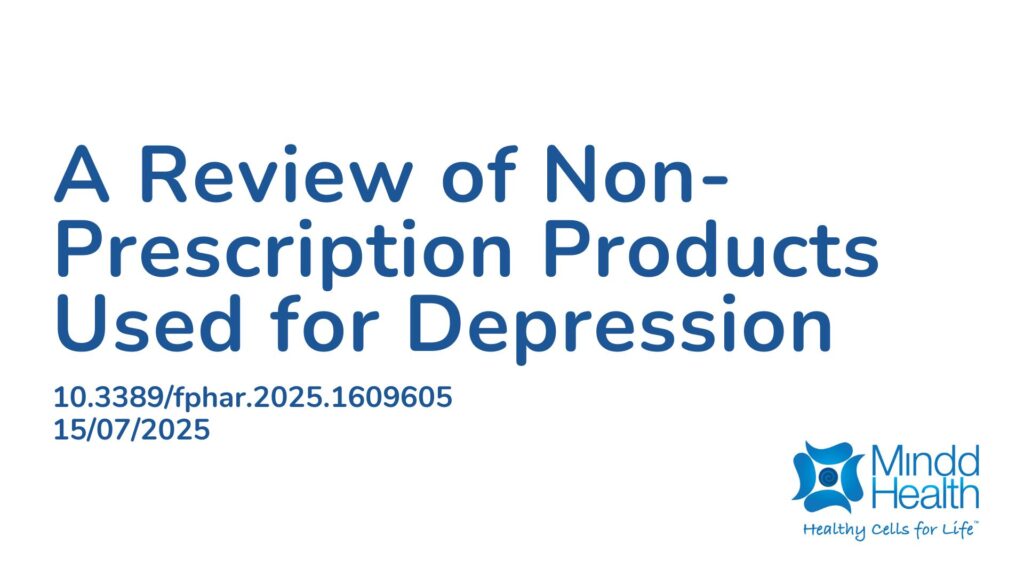Summary:
Depression affects a significant portion of the population, with major depressive disorder (MDD) prevalence ranging from 2% to 21% globally. MDD is defined as experiencing five or more depressive symptoms over a two-week period, including depressed mood and loss of pleasure, alongside other symptoms like changes in appetite and sleep patterns. Factors contributing to MDD include genetics, life stressors, and chronic illnesses. Some theories suggest deficiencies in neurotransmitters like serotonin, increased activity in the hypothalamic-pituitary-adrenal (HPA) axis, and chronic inflammation. Current treatment recommendations include psychological therapies, exercise, and pharmacological treatments like anti-depressants. However, access to these therapies is limited, with long waiting times for psychological treatments. Many individuals self-manage depressive symptoms, often turning to over-the-counter (OTC) herbal products such as St John’s Wort, vitamins, and minerals. These products may act through various mechanisms such as reducing inflammation, oxidative stress, and modulating neurotransmitters. This scoping review was conducted to summarize the evidence for OTC products in depression treatment among adults aged 18-60. The review identified omega-3s, St John’s Wort, saffron, probiotics, and vitamin D as extensively studied. Products like lavender, lemon balm, chamomile, and Echium showed promising evidence. Safety profiles of these products, either alone or combined with antidepressants, remain a concern needing further study. In conclusion, folic acid, lavender, zinc, tryptophan, Rhodiola, and lemon balm were identified as having limited but promising evidence for treating depression. Future research should focus on evaluating these products as adjuncts to traditional treatments and exploring their integration with psychological therapies.
Abstract:
Background: Over-the-counter (OTC) products such as herbal medical products (HMPs) or dietary supplements are a valued part of preventative and supportive self-care for depressive symptoms, but there is a wide array of products available, with differing levels of clinical evidence. It is unclear what the optimal directions for future research in this field are. Aim: We aimed to explore the size and nature of the evidence base available for OTC products for depression in adults aged 18–60. Methods: We carried out a scoping review following Joanna Briggs Institute guidance. We searched MEDLINE, Embase, PsycINFO, AMED, and CENTRAL from inception to December 2022, and 10% of the results were screened by two authors and the remainder by one author. We included randomised controlled trials of products commonly available OTC in multiple countries in participants with symptoms or a diagnosis of depression. Results were narratively summarised by the product and volume of evidence available. Results: Out of 23,933 records found, we screened 1,367 full texts and included 209 trials. The largest volume of evidence was for omega-3s, St John’s Wort, saffron, probiotics, and vitamin D. Among a range of herbal medical products with promising evidence, those most commonly used and thus warranting further research were lavender, lemon balm, chamomile, and Echium. For 41 products, we found only single trials. Few products presented safety issues, whether used alone or adjunctively with antidepressants. Conclusion: Products with limited but promising evidence included folic acid, lavender, zinc, tryptophan, Rhodiola, and lemon balm, and future research should focus on these products. There is a need for further evaluation of herbal medical products as adjuncts to antidepressants and for exploring their potential benefits when used adjunctively with psychological therapies to support a more integrative approach. Safety reporting in these trials needs to be further improved.
Article Publication Date: 15/07/2025
DOI: 10.3389/fphar.2025.1609605



